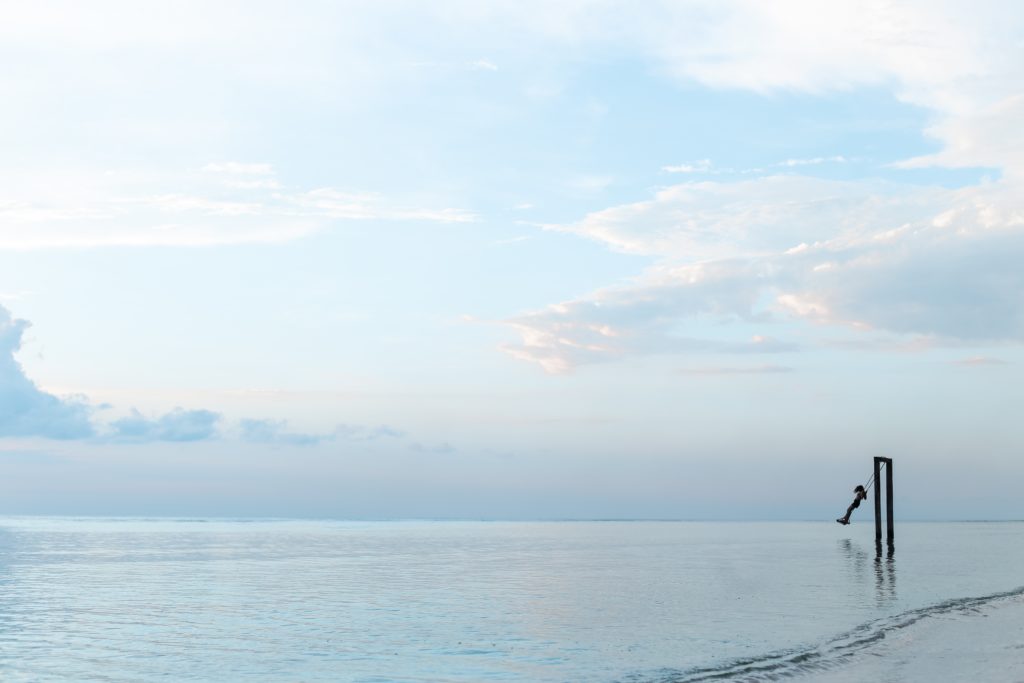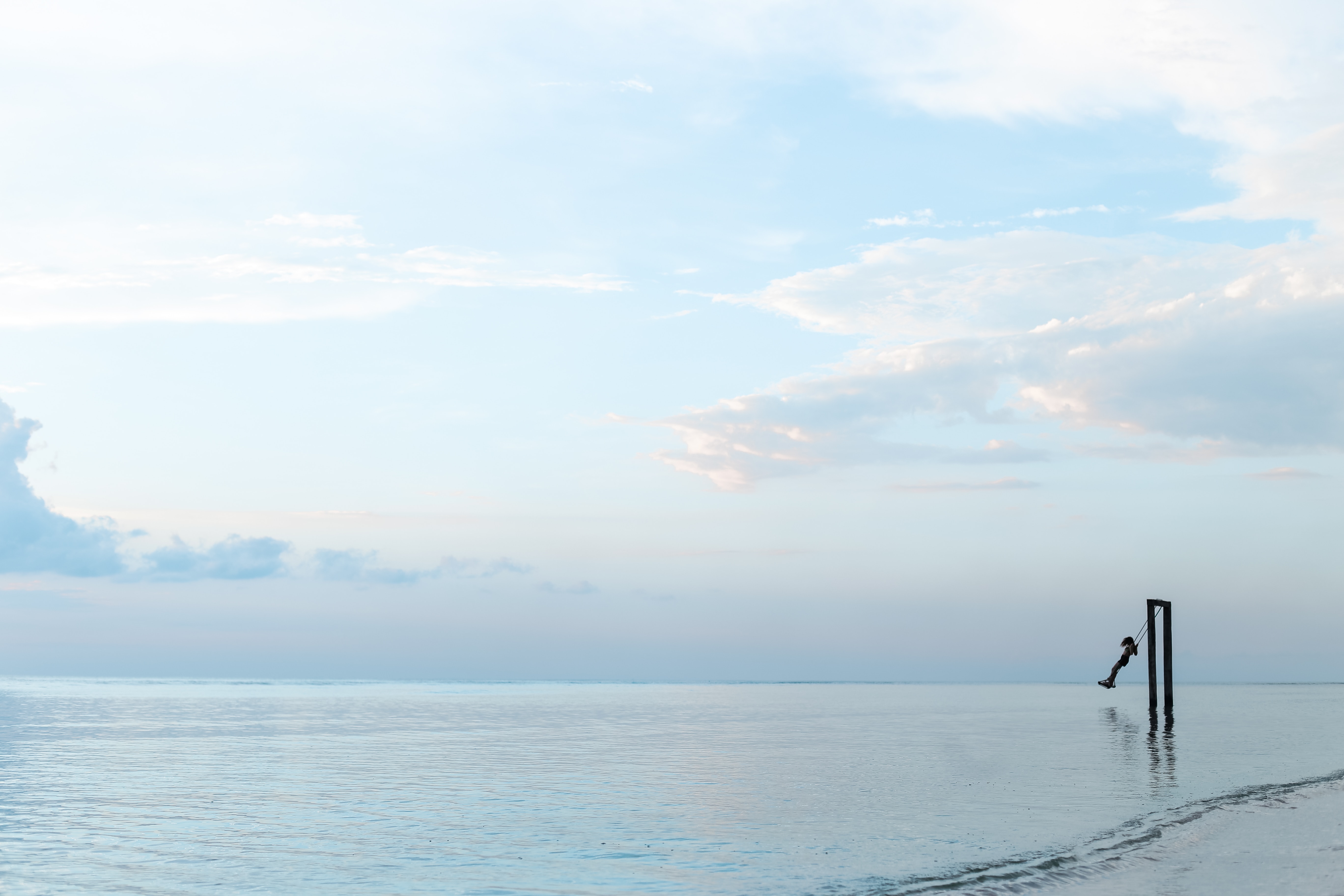Recovery is a topic often discussed in the realm of fitness or exercise, but rarely considered outside that context.
To recover: to get back again; to bring back to normal position or condition; to find or identify again
These are the sorts of things we are referring to in a sabbatical or recovery context.
“To find or identify again,” cuts to the reality of creative work being all about identity. Identifying who you are and what you want to say; identifying who you want to speak to; identifying your message; making your identity something easy to remember. Then, you are producing content which aligns with all of those identities, week after week. This is mentally and emotionally taxing work, and it takes considerable time and energy.
Working yourself into a state of burnout or lack of motivation doesn’t have to be the curse of the creative.

This is why we must give ourselves boundaries.
They aren’t to limit us, or to simply make a statement about work life balance. Boundaries help us continue creating at a high level over the long term. Hard work requires recovery; requires finding identity and focus week in and week out.
The way you avoid burnout is by protecting your energy and creativity. In other words, setting up boundaries to keep your creativity high, and other demands away from it. The best way to do this is to carve out time for rest and recovery.
The following are the two best ways to set up boundaries. Both involve incorporating rest into your schedule by protecting that time for yourself as you would treat any other meeting or appointment. Commit to resting, write it down, and follow through with it.
Decide on a daily cut-off time and stick to it.
The first way to ensure you have time to rest is to stop work at a certain time each day. Evenings can only be a time of rest and recovery if you are not working during them. Pick a time every day to stop working and commit to resting and recovering the rest of the day. Spend time with your family, or on another endeavor you enjoy.
Hemingway actually recommended stopping for the day while you still had some inspiration to work with.
“I had learned already never to empty the well of my writing, but always to stop when there was still something there in the deep part of the well, and let it refill at night from the springs that fed it.”
Ernest Hemingway
There will always be work to do. Most of us, at any given time, can tick off twenty tasks that need to be done. The reality is, this will never change; there will always be another task to complete, project to plan, enterprise to consider.
As a writer, I feel the constant tension of wanting to read and research around the clock, working in fits of inspiration. This is not sustainable, however, and puts the rest of my time at the mercy of writing, with no margin to rest. It’s not practical. We simply can not allow our work to dictate our time. We have to decide which things take priority, and tell our time where to go.
Building the habit of separating our working time and protecting leisure time makes it easier to focus at the appropriate times, and makes it possible to get into a state of flow. Beginning today means you’ll build the habit that much faster, not falling prey to the temptation of “one-day,” which never comes; allows for creativity and inspiration to germinate that much sooner; and ensures that you do in fact, get some rest.
Spend time on hobbies, preferably analog and/or outside.
Much has written about the importance of taking time away from screens. Having a hobby you can turn to regularly, whether it’s woodworking, cooking, jogging, or something else, helps refuel your creative energies.

Taking time away from your project to spend on something else can seem counter-intuitive. After all, why wouldn’t you want to spend every minute possible on making that project the best it can be? However, something happens in our brains when we give our focus and energy to another leisurely endeavor. Our minds make connections and find inspiration when we step away from the work. You’ve probably experienced thinking deeply about a problem, only to run up against a wall when seeking a solution. Then, later at the gym or in the shower or right before bed, suddenly the answer appears, seemingly out of thin air! The time spent away from the problem, and engaged in other tasks allowed your mind to find the solution. In building leisure time into your schedule you are effectively building inspiration into it. You are creating distance in which your mind can work.
Winston Churchill famously painted and laid bricks in his leisure time. He especially liked the relaxation painting provided, and continued to do so over forty years. Many biographies claim the time he was painting was the only time he remained in complete silence. Churchill credits painting with making him slow down and notice nature and beauty he would have otherwise missed.
Abraham Lincoln was a wrestler in his younger years. The majority of the Forbes 500 list all spend nearly two hours daily on personal projects and leisure hobbies, including journaling, hiking, gardening, painting, or simply leisure reading.
In order to perform at a high level, you need to spend time in leisurely pursuits.
It’s also worth mentioning that television doesn’t seem to compare to the relaxing and stress-relieving properties of analog hobbies. So, while binge watching Friends may sound relaxing, you likely will find yourself calmer after taking a short walk or reading or writing for a few minutes. The physical movement and interactions of the senses seems to play a role in the calming experience.

With the goal being to continue working at a high level indefinitely, hobbies make it possible to relax while still engaging your mind. They can also improve your mental clarity, mood, and increase your productivity. I enjoy photography, lifting weights, trying new recipes, and scrapbook journaling in my spare time, and find they all inspire creativity, yet have a relaxing effect. One man’s work is another man’s leisure.
How can you find twenty minutes in your day to spend on leisure, whether it’s outdoors, reading, or simply writing down your thoughts?




